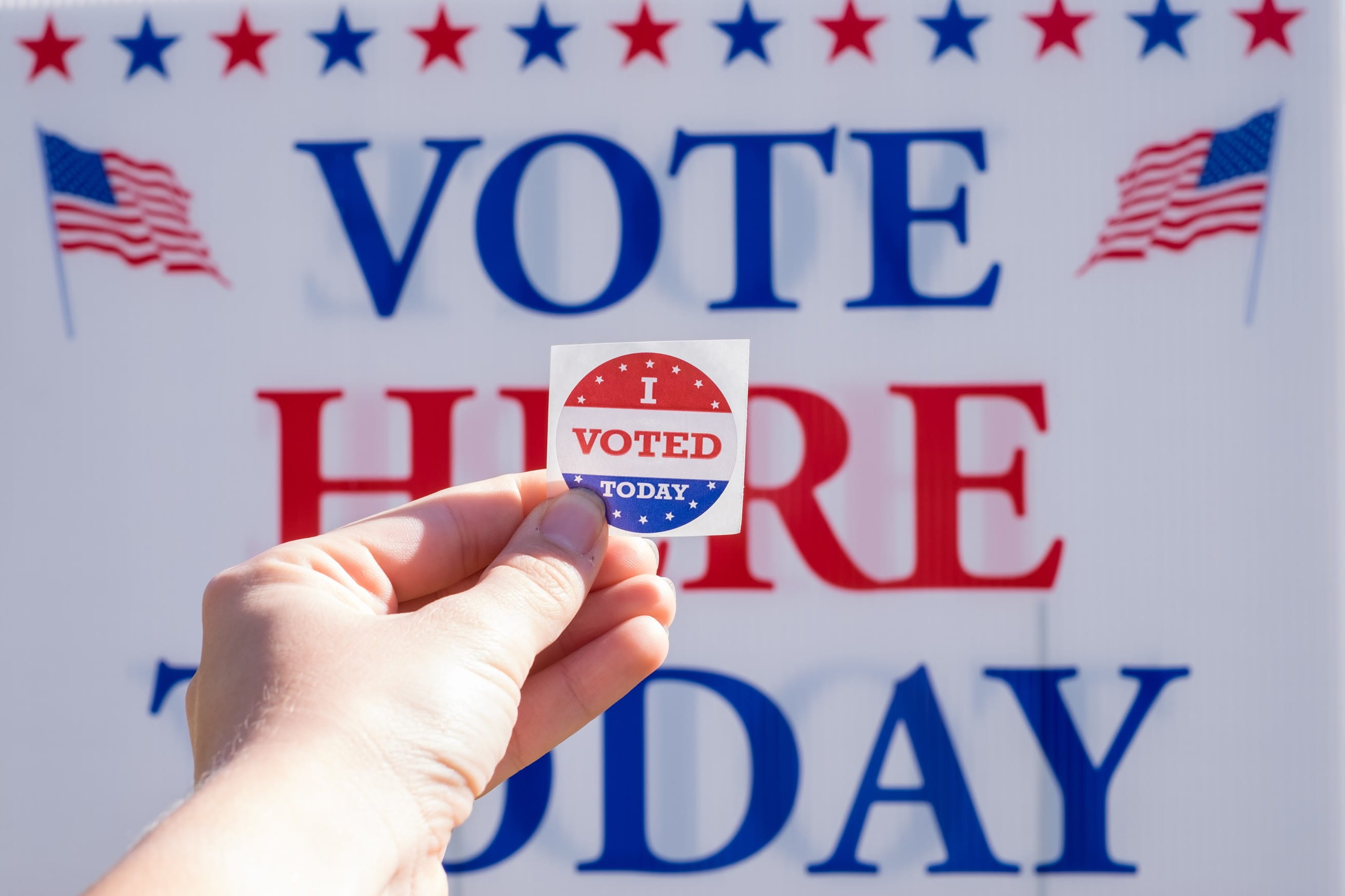By Anna Connole, Campus Vote Project Fellow at Dukes Vote & @JMUCivic associate director Dr. Carah Ong Whaley
 When it comes to its voter education, registration and mobilization efforts, The James Madison Center for Civic Engagement and Dukes Vote are advancing James Madison University’s vision to be a model for civic engagement. At the heart of our work is building inclusive coalitions and collaborative partnerships for curricular and co-curricular programming across campus.
When it comes to its voter education, registration and mobilization efforts, The James Madison Center for Civic Engagement and Dukes Vote are advancing James Madison University’s vision to be a model for civic engagement. At the heart of our work is building inclusive coalitions and collaborative partnerships for curricular and co-curricular programming across campus.

Fall 2018 Traveling Candidate Town Hall in partnership with JMU’s Office of Residence Life
In practice, this has meant working with faculty to provide in-class opportunities to learn about voter registration and voting processes, and partnering to produce non-partisan voter education guides and materials. Dr. David Stringham and Dr. Jesse Rathgeber and their students in the College of Music worked with us to bring music to the polls on Election Day to build a culture of democratic engagement. The Office of Residence Life (ORL) is bringing civic learning and democratic engagement to where students live with our jointly organized Traveling Candidate Town Halls and efforts discussed below, and UREC embraced the opportunity to bring voter education to where students are (at the gym). Our campus Election Night Watch Party would not have been complete without involving Furious Flower Poetry and Dr. Joanne Gabbin, Lauren K. Alleyne and JMU students reading poems to remind us of the struggles for freedom and rights that many constituencies have faced and continue to face. Partnering with Women of Color, Mad4U and other student organizations were essential for non-partisan voter education efforts.
The goal in all of these collaborations, partnerships and events is to educate and engage JMU students, faculty and staff in the work of building a more just, equitable and inclusive democracy. And everywhere we turn, we are finding that JMU students, faculty and staff are eager to advance the civic mission of our university and to work alongside community partners in Harrisonburg and Rockingham, not to mention with national partners, like the American Democracy Project, All In Campus Democracy Challenge, Campus Vote Project, and the Campus Election Engagement Project, just to name a few.
Building inclusive coalitions and working together pays off! We assert it was that shared mission of EDUCATING and engaging voters, and the shared work to achieve that vision that raised our turnout rates in the 2018 election.
Despite the progress on voter education and engagement, there are still barriers to education and participation. Although we’ve worked to develop materials to overcome the technical barriers, educating on voting processes and reminding people to update voter registration are themselves a massive education effort, especially when students register locally and have to move each year.
One of the challenges we’ve identified with our local Director of Elections, the City of Harrisonburg Electoral Board and campus mail services can be easily fixed. The Virginia Department of Elections sends out reminders to voters that their address needs to be updated in the month of July. The on-campus residents of JMU and certainly the vast majority of all college residents in the state are away when the letter is received at their college address, and therefore do not get notice. Thousands of undeliverable notices pile up at campus mail services and in the offices off the local Director of Elections.
This year, JMU’s Office of Residence Life is leading the charge to address the issue by making updating voter registration part of the move-out process. Another effort to meet students where they are with important pieces of voter know-how, this initiative includes developing materials and videos about what students need to do before they leave for the summer. The materials will also be distributed through Off-Campus Life.
However, we, including our local registrars, also urge the Virginia Department of Elections to send notices to voters in April so more reminders will actually be received.
The DMV process, which is meant to make voter registration more inclusive, also poses many challenges as the process has inadvertently updated registrations that individuals do not actually wish to update. Another barrier is the DMV process, which asks if those getting a license would like to update their voter registration. Students have the unique opportunity to register to vote either where they reside for school or at their so-called “permanent address” (i.e. a family residence).
We recommend convening representatives from the DMV, the public and universities, local registrars (who bear the brunt of work in this process and are often blamed by inadvertent changes through the DMV system) and the Department of Elections to streamline and address this issue.
Working together, we can help address barriers to voting AND make voter rolls more accurate.

Recent Comments